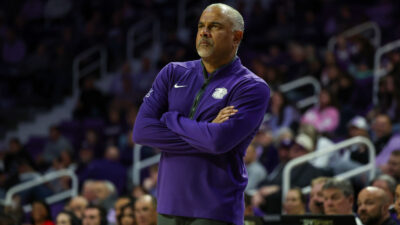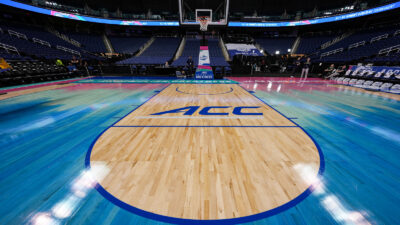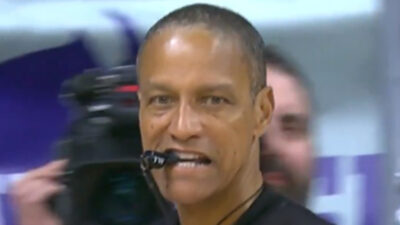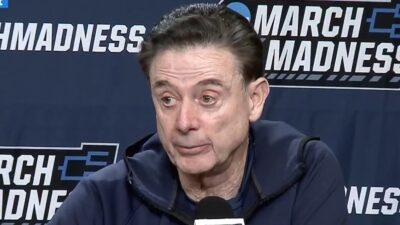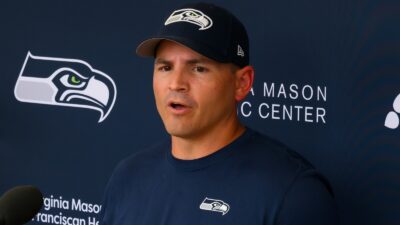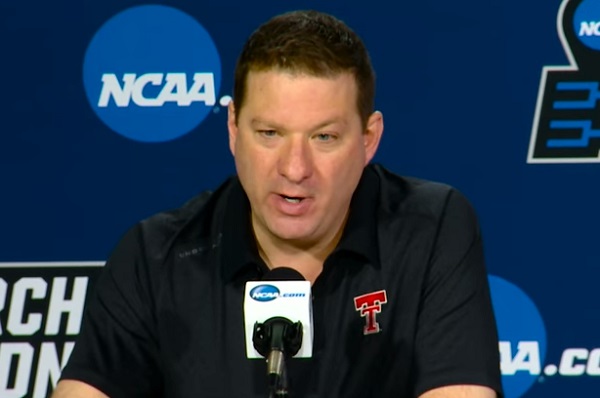
College basketball has been a roller coaster ride ever since Duke started the season by routing Kentucky in October. It feels like the five months since have contained ten different seasons, with teams pin-balling up and down throughout the year. After all of that, Saturday treated us to two excellent Final Four games, leaving just one college basketball game on the calendar this season.
Monday will provide two programs a chance at the national championship, but first, let’s examine what happened in Minneapolis in the semifinal games.
1. Two calls in the final seconds swing the game
Virginia took control of the game in the second half against Auburn, building a lead of 10 points in the final minutes. Auburn knifed into that lead with a 14-0 run, holding Virginia scoreless for more than five minutes of game play.
Auburn held a two point lead with less than ten seconds to play. As Virginia attempted to advance the ball, the Tigers used their two remaining available fouls-to-give to slow the Hoos. Before Auburn could commit its sixth team foul, Virgina guard Ty Jerome dribbled the ball off his own foot before retrieving it and recommencing his dribble. Because no Auburn player touched the ball, a double-dribble should have been called, essentially ending the game with an Auburn win.
Instead, the refs allowed Jerome’s mistake, Auburn took a foul, and Virginia had a chance to inbound to tie or win the game.
The Hoos inbounded to Kyle Guy who rose for a 3-pointer to win the game. Guy missed the shot, yet was fouled by Samir Doughty. For a referee, calling a foul on the game’s final possession and essentially deciding the outcome reuqires a courage and certainty. At full speed in the moment, the call seemed debatable. In slow motion on replay, Doughty absolutely fouled Guy by leaving his feet and contacting Guy’s legs.
Both plays ended up favoring Virginia, sealing the win late for the Cavaliers.
2. Ty Jerome was the best player on the floor
For 35 of the game’s 40 minutes, Virginia outplayed Auburn, thanks in large part to Ty Jerome. The junior guard controlled the tempo for Virginia, initiated everything the Cavaliers did offensively, and scored within the flow of the game.
Jerome finished the game with 21 points, 9 rebounds, and 6 assists. He made four of Virginia’s seven 3-point baskets in the game, almost seemingly whenever the Hoos needed a bucket.
When Jerome left the game with four fouls late, Virginia looked to be cruising to a victory. Without Jerome on the floor, the Cavaliers’ offense broke down. Auburn used Virginia’s offensive incompetence to spark the run that would help the Tigers take the led.
3. Virginia dominated the paint
Auburn came to the Final Four without its best frontcourt player after Chuma Okeke tore his ACL last weekend. It showed on Saturday night, with Virginia’s big men controlling the game at the rim.
Even though Virginia plays most of the game with three guards on the floor, the Hoos’ frontcourt stymied Auburn all game in the paint. The Cavaliers finished the game with nine blocks. Mamadi Diakite led the way with 5 rejections.
So much of what Auburn was looking to accomplish offensively was turned away at the rim, turning the Tigers into a jump-shooting team.
4. Texas Tech’s defense prevails
Chris Beard has built a defensive juggernaut in Lubbock. The Red Raiders rank first in the nation in defensive efficiency, holding teams to just 84 points per 100 possessions this season. Every time Texas Tech takes the floor, the Red Raiders make life very difficult for their opponents for 40 consecutive minutes.
Saturday night was no exception. Michigan State was slowed to a stop by the Texas Tech defense. Only five Spartans scored in the game, with Michigan State shooting under 32 percent as a team. For just the seventh time this season, Michigan State committed more turnovers than it had assists. In fact, Texas Tech held Michigan State to its fewest assists of the season, as the Spartans posted a season low of six assists.
Cassius Winston and the Spartans constantly failed to find an answer, never getting into a rhythm offensively.
5. Matt Mooney made up for Jarrett Culver’s slow night
Texas Tech’s offensive attack leans heavily on Big XII Player of the Year and future lottery pick Jarrett Culver. Against Michigan State on Saturday night, Culver struggled. The Spartans clearly gameplanned to bottle up Culver, holding him to only 3 of 12 shooting from the floor.
The Red Raiders were in need of a scoring pop with Culver contained, and Matt Mooney provided enough to put Texas Tech ahead. Mooney, at his third school in his collegiate career, scored 22 points on Saturday. He hit 4 of 8 from outside the arc, sparking the Tech offense.
Texas Tech’s biggest problems this season have come when no Red Raider other than Culver steps up and provides scoring. If Mooney can continue to shoot the way he did Saturday, Virginia’s defense will face a tougher test than expected.
6. Monday’s title game should be a bruising battle
Texas Tech and Virginia will now meet to determine the national champion on Monday night in Minneapolis. Both teams have earned their way to the national final, beating some of the nation’s best teams as they advanced through the tournament. Prior to the NCAA Tournament, both won or shared the regular season crown in their respective conferences, two of the nation’s best leagues.
These two teams have succeeded this season in similar ways. Both are defined by their defense, each ranking in the top 3 in the nation in points allowed. Virginia and Texas Tech both allow under 60 points a game, due to suffocating defense and a preference for a slow tempo.
We should be expecting a slugfest on Monday, a rock fight for the ages. Vegas can’t set the over-under total low enough for these two defensive bullies.
Shane McNichol covers college basketball and the NBA for Larry Brown Sports. He also blogs about basketball at Palestra Back and has contributed to Rush The Court, ESPN.com, and USA Today Sports Weekly. Follow him on Twitter @OnTheShaneTrain.

